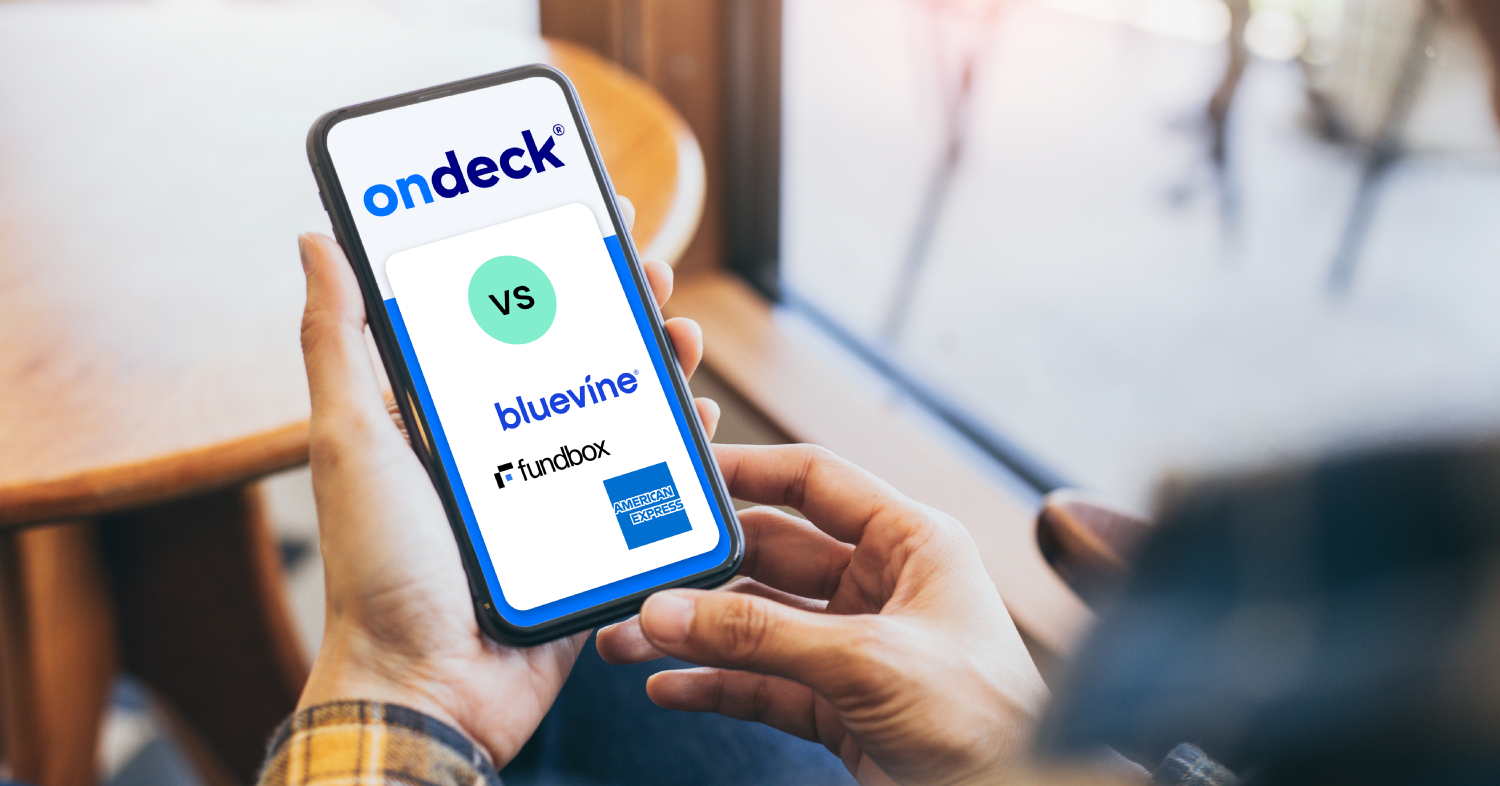Leasing vs. Buying Business Equipment: What Makes Sense for Your Business?
Whether it’s heavy machinery, farm equipment, X-ray machines, phones, computers or office furniture — small businesses require some type of equipment to operate. The question is whether to lease or buy this equipment.
Buying equipment is expensive, but it can also become a valuable asset for your business. There are also advantages to leasing equipment (like potentially lower upfront costs), but leasing also has its drawbacks.
So which is the right option for your business?
Let’s dive into some of the pros and cons of both leasing and purchasing, as well as the other options that may be available.
Leasing vs. buying equipment — what’s the difference?
Leasing and buying are two different approaches to equipment financing. The main difference lies in who owns the equipment.
Leasing. If you decide to lease equipment, then you will not be the owner of that equipment. Instead, you’ll be renting the equipment from a leasing company. In general, a lease can last anywhere from a few months to several years. During that period you’ll make lease payments — the specific terms and cost will be determined by the leasing company. At the end of the lease, you may have the option to buy the equipment, renew your lease or return the equipment.
Buying. When you buy equipment, you will be the owner. Because business equipment can come with a hefty price tag, many small business owners opt to take out an equipment loan. Depending on the lender, you may need to make some sort of down payment to secure an equipment loan, but there are alternative financing options available. While the specifics of these types of business loans will depend on the lender, you can generally expect equipment loans to last anywhere from one to 10 years. At the end of the repayment period, you get to keep the equipment. An equipment loan can be used for both new and used equipment.
What are the benefits of leasing equipment vs. buying?
Leasing equipment offers a few advantages for businesses.
Upfront costs. It typically requires less upfront capital compared to buying. When you buy equipment, the lender may expect a down payment, and paying for equipment outright may not be an option. Leasing, on the other hand, may not require any money down and can help you protect your cash flow.
Flexibility. Leasing equipment allows you to upgrade to newer, more advanced equipment at the end of the lease term. When you buy equipment, you’re stuck with the same technology until you decide to sell or upgrade.
Maintenance and repairs. Leasing agreements can include maintenance and repair services, which can save you time and money. If you purchased the equipment, those costs may come out of your pocket.
When to consider leasing equipment
Before deciding to lease business equipment, you may want to consider your unique business position and if it’s the right option. Here are a few situations in which leasing may be a good option:
- You don’t have the capital for a down payment. If you don’t have the capital to purchase equipment or make a down payment on an equipment loan, leasing may be able to help you acquire the equipment you need.
- The equipment becomes obsolete quickly. Certain types of equipment, like technology, can quickly become obsolete when the next big device hits the market. If you want your business to stay on the cutting edge, then leasing may be able to provide more flexibility for upgrades.
- You’re in a growth phase. If your business is growing and you’re having to get more, better or bigger equipment, leasing may be able to help you acquire the right equipment without sacrificing the cash flow you need for growth.
When to consider buying equipment
When thinking about buying equipment, consider your business’s needs and resources. Here are some times when buying may be a good option:
- You’ve got the capital. If you have sufficient working capital to purchase equipment or make a down payment on an equipment loan without disrupting cash flow or sacrificing other business needs, then buying equipment may be right for you.
- The equipment will last a long time. Some equipment has a very long life span and isn’t likely to become obsolete anytime soon. Things like heavy machinery or tractors may be better candidates for purchasing since they are likely to continue being useful after the loan is paid off.
- You want to grow your business’s assets. Ownership is a huge perk of buying equipment. You won’t have to deal with any limitations or restrictions that may come with a lease. Plus, the equipment will become a long-term asset for your business.
Pros and cons of leasing equipment
Pros
- Cost. Lower initial costs and steady monthly payments can help you better manage your cash flow.
- Tax benefits. Lease payments may be tax deductible as a business expense.
- New equipment. Leases with fixed terms can make it easier to upgrade to the newest technology.
Cons
- No ownership. Not owning equipment can be a disadvantage. You’re likely putting a good amount of money towards a lease and the equipment isn’t a business asset.
- Total cost. While leases are often cheaper in the beginning, you may end up paying more than the cost of the equipment over the life of the lease.
- Contractual obligations. Depending on the lease agreement, the use of the equipment may be subject to restrictions. You may also run into penalties and fees for things such as early termination.
Pros and cons of buying equipment
Pros
- Ownership. Owning a piece of equipment can be a big plus for your business as it can become a valuable asset.
- Tax breaks. You may be able to take advantage of certain tax benefits like depreciation deductions or section 179 deductions.
- Residual value. Since you own the equipment, you can decide to sell it when it’s no longer needed, or it could potentially be used as collateral.
Cons
- High initial cost. There are a lot of costs associated with equipment purchases. The equipment itself may be expensive or you may need a down payment for an equipment loan. Plus, if you do opt for a loan you’ll need to think about things like interest rates and the overall cost of borrowing.
- Maintenance cost. The cost of fixing and maintaining equipment will fall on your shoulders as the owner if not covered by warranty.
- Outdated equipment. You may get stuck with equipment that’s fallen into obsolescence.
- Depreciation. Used equipment can lose value over time, this can impact its resale value and the equipment’s value as a business asset.
Hear what other small business owners have to say about leasing vs. buying equipment
Assess your businesses needs and capacity
Of course your ultimate decision depends on the supply and demand of the rentable equipment you’re looking for, because these will swing wildly industry-to-industry and will hopefully make it a no-brainer. But if the call is close, here are some benefits and drawbacks:
Renting is usually a better option when you’re testing a new product or have other reasons for short-term use, you want to try out the equipment before buying, the lead-times are too long to buy, you are having difficulty making the decision and they have rent-to-own programs, you can’t afford your own machine and have bad credit, or you don’t have staff that can maintain the equipment even to a minimal level.
But if you know what equipment you want, have the staff to maintain it, and the lead-times are acceptable, it’s almost always better to buy. The monthly payments on a loan are almost always going to be less than the cost to rent, and then you own the equipment and can spare all the shipping back-and-forth, because that becomes a huge expense with most equipment.
Jeff Walling, Co-Owner
ABM Equipment Co.
Use a balanced strategy
In my experience, deciding between buying and leasing equipment hinges on several key factors: your business’s financial health, the nature of your industry, and the pace at which technology evolves.
For businesses in rapidly advancing sectors like ours at Little Rock Printing, leasing provides the flexibility to access the latest innovations without requiring significant capital investment. This allows us to stay competitive and agile.
This flexibility was beneficial for managing cash flow and staying competitive. Moreover, leasing often includes maintenance services, reducing the burden on our internal team.
Conversely, if your industry features stable technology and you aim for long-term cost savings, purchasing equipment might be more advantageous. Ownership can lead to reduced overall expenses and provide certain tax benefits over time.
Additionally, buying equipment often offers long-term cost benefits, as we could avoid ongoing leasing fees and benefit from depreciation tax deductions.
I’ve found that a balanced strategy often works best. We choose to buy essential long-term equipment that doesn’t need frequent updates, while leasing items that benefit from the latest advancements. This approach ensures we maintain operational efficiency and cost-effectiveness.
Brian Kroeker, President
Little Rock Printing
DISCLAIMER: This content is for informational purposes only. OnDeck and its affiliates do not provide financial, legal, tax or accounting advice.
Article Contributors

Jeff Walling, Co-Owner of ABM Equipment Co.
With over 25 years of professional experience, Jeff is a bulk dry goods industry specialist and expert in all aspects of material storage, handling, processing, and packaging. This includes process and mechanical engineering, fabrication, and integration of product conveying, sorting, feeding, screening, mixing and blending, dust collection, milling, drying, weighing, bagging, and palletizing equipment.

Brian Kroeker, President of Little Rock Printing
Brian Kroeker is an expert in bootstrapped business growth, having successfully transformed his local brick-and-mortar print shop into a thriving national e-commerce company. His team has grown to over 20 dedicated members, and as an active participant in Calgary's local business community, He takes pride in giving back regularly.



